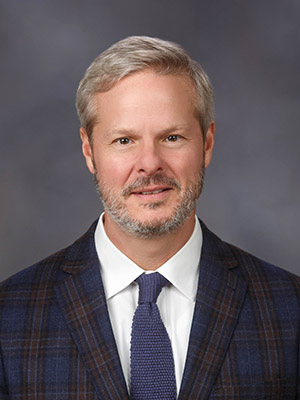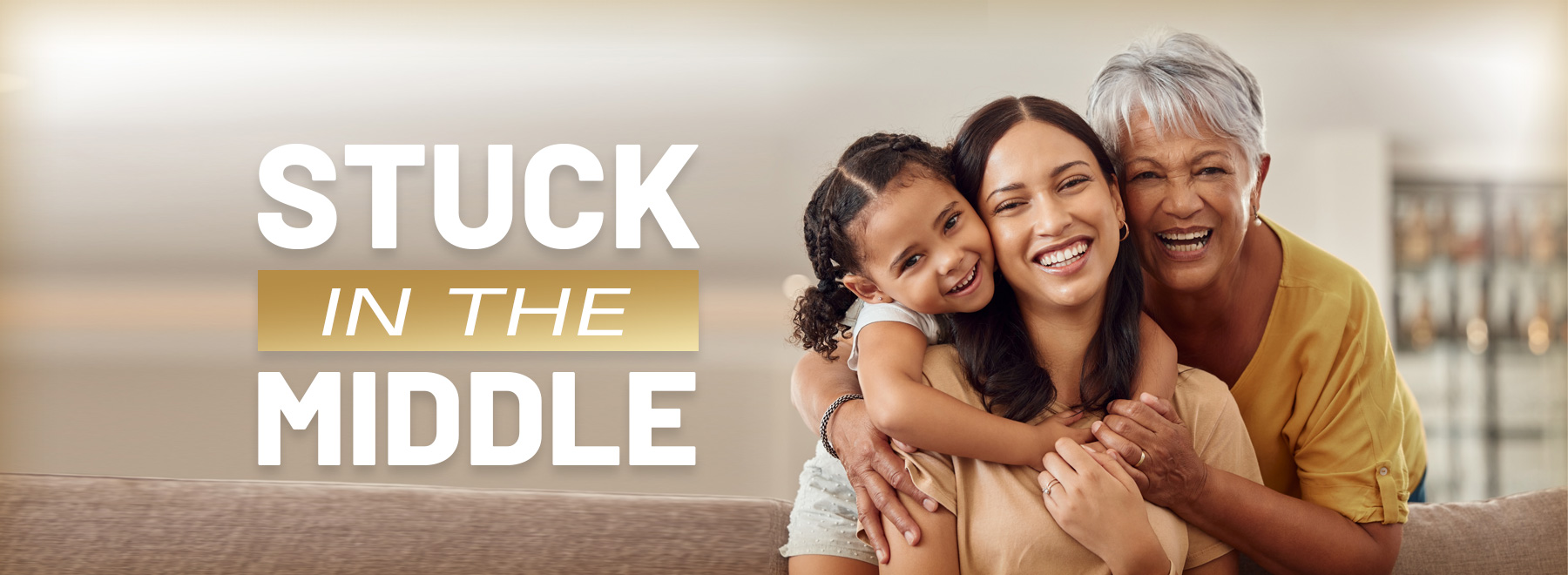Self-care, time management help sandwiched Gen X parents
Coming home from school to an empty house became a cultural identity badge for kids in the 1980s, as for the first time in post-World War II America, mom and dad had to work a full day to make ends meet.
Those “latchkey kids” of Generation X are themselves middle-aged, multitasking caregivers now. For a growing lot of them, the house they come home to has never been more crowded.
As a function of the typical U.S. life span, people in their 40s are often in the likeliest group of adults to sandwiched between their children and an aging parent. In 2021, the Pew Research Center found 54 percent of those in that age group have a living parent aged 65 or older and are either raising a child younger than 18 or have an adult child they’ve helped financially in the past year. Those married and with at least a bachelor’s degree were the likeliest subsets of people to find themselves in the situation.
Whether maw-maw, paw-paw or both are in the same household with their Gen X children and millennial or Gen Z grandchildren or not, the topics generating the most daily stress are ones of focus and attention.
At the University of Mississippi Medical Center, child psychologists, experts in geriatrics and those who work with parents in between say it comes down to communication and accepting a little help from others as a good thing. Many draw from their own lives as examples.

“As a parent, your first allegiance is to your kids – but I say that with caution,” said Dr. David Elkin, child psychologist and professor in the departments of psychiatry and pediatrics. “You don’t want to totally ignore the adult grandparent. But it’s a different set of loyalties owed there. The first priority must be with the kids. Most in the older generation would understand that, but some won’t, obviously.”
As director of the Center for the Advancement of Youth, Elkin works with parents of children in this situation and more to provide care for children with behavioral or developmental issues throughout Mississippi. He’s navigated much the same situation as a father of four daughters still looking out for an 83-year-old father in the years following the death of his mother two years ago.
“What you do as a parent is one of modeling – you’re modeling for your kids,” he said. “You’re showing them how to take care of older folks and give respect to grandparents. So, if they see you talking bad about your parents to other people, children can recognize and remember that later in life.”
The cost of professional care for older adults often drives the decision whether to live with their children, said Dr. Kim Tarver, director of the division of geriatrics, who grew up the youngest of five children and watched her mother take care of her grandfather and grandmother in the same house, all while trying to hold down full-time employment.
“I tell my patients this is part of the way life works best,” Tarver said. “We learn to be dependent on one another, and we don’t try to give ourselves a false narrative that we have to do it ourselves. Tears usually flow and a caregiver is relieved when I bring that up.”

Dr. Katharine Gregg, director of geriatrics at UMMC, is a mother of two college-age children and cared for her father until his death in 2019 after being in hospice and long-term care facilities.
“What I learned from the experience with parents at home with early dementia and then in assisted living and memory care units that you need to take time for yourself and your own health – physically and emotionally,” Gregg said. “Sometimes, you have to let things go in order to catch your breath and get some rest. And it’s not a bad thing to ask friends and others for help doing things, such as running an errand, picking up food or picking up children from school.”
Gregg suggests family caregivers of any age take part in Caregiver University, a training program offered by The MIND Center that provides an array of tools both practical and emotional for those caring for people with Alzheimer’s disease or related dementias.
Held virtually via Zoom and offering pre-recorded videos participants can watch at their leisure, the program has provided levels of support for more than 450 applicants since its inception in 2020, said Kathy Van Cleave, director of education and outreach for The MIND Center and manager of CGU.
“Through CGU, we’ve been able to help people develop improved plans of care for their loved ones, and, at times, make changes as a direct result of information they learned in a session,” said Van Cleave, who brings experience as a “sandwich generation” member herself. She housed her dad, a prostate cancer survivor, and mom, a Type-1 diabetic, for six months just before and during the start of the COVID-19 pandemic after moving out of their suburban Atlanta home of 45 years.
“I firmly believe they wouldn’t have survived the pandemic had they not moved in with my family where we could support their care,” she said.
Tarver, who in addition to being a board-certified internist in geriatrics also holds a certificate in training in psychotherapy and is director of clinical services at The MIND Center. Her childhood experience watching her mother, who is still living, then her own time working with older adults has helped her form a short strategy list for their Gen X children who are now trying to make the “sandwich life” a bit more palatable.
“You have to learn how to care for yourself and recognize your limitations,” she said. “Give only what you can really give, physically and psychologically. Then, be aware your older parents will probably try to hide things they need help with, like with managing their money and such. Be looking for changes in judgment, because they don’t want us to see it and we don’t really want to see it, either.
“And try to slow down the pace of life. The pace we have our kids on is often too fast. You have to say ‘no’ to something, in terms of activities and sports. That’s not a bad thing. You teach your children to prioritize family that way.”
For questions about the Center for the Advancement of Youth or about the center’s referral process, call 601-984-5236 or visit Center for the Advancement of Youth (CAY) - University of Mississippi Medical Center (umc.edu).
To learn more about Caregiver University, visit Caregiver University Topic List - University of Mississippi Medical Center (umc.edu). To learn more about the MIND Center, visit Memory Impairment and Neurodegenerative Dementia Center (MIND Center) - University of Mississippi Medical Center (umc.edu).
The above article appears in CONSULT, UMMC’s monthly e-newsletter sharing news about cutting-edge clinical and health science education advances and innovative biomedical research at the Medical Center and giving you tips and suggestions on how you and the people you love can live a healthier life. Click here and enter your email address to receive CONSULT free of charge. You may cancel at any time.



